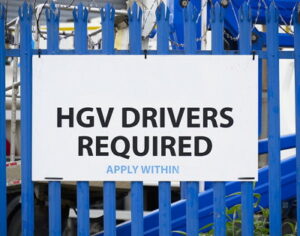 Problem gambling is something that many bettors and gamers from all walks of life are affected by. There is no set recipe for what instigates problem gambling and people can be affected in different ways depending on income, age, location and peer groups.
Problem gambling is something that many bettors and gamers from all walks of life are affected by. There is no set recipe for what instigates problem gambling and people can be affected in different ways depending on income, age, location and peer groups.
While problem gambling does not discriminate it does seem that there are certain occupations which tend to suffer more from the issue. But why are those workers more likely to fall into a gambling habit than others?
Furthermore, is it the profession itself that triggers the need to gamble or is it simply that these jobs attract a certain type of person who is already prone to gambling issues in general?
That’s what we’re here to look at today – which jobs have the most people employed in them who suffer with problem gambling? Well, research has indeed been conducted on this and various discoveries have been made surrounding what jobs people who are at higher risk of problem gambling work. Join us for a closer look at this.
Manual Jobs with Male Workers Score High

One source of information relating to the correlation between jobs and gambling comes from a 2015 population study on gambling and health. Through this, two gambling variables were looked into – regular gambling participation and at-risk and problem gambling, and these variables were measured by the Problem Gambling Severity Index (PGSI).
Through that research, a significant difference between occupational groups in terms of the two gambling variables was discovered. Jobs that required manual labour and were predominantly male working environments scored high, with much more of a noticeable figure if there was no fixed workplace. Furthermore, three types of workers within this field were found to have a much more elevated level of gambling activity, which were:
- Building, Construction and Service, Mobile
- Vehicle Drivers
- Monotonous Manual Indoor Workers
Various studies have already displayed information that at-risk and problem gambling (ARPG) sufferers are more prevalent amongst men, younger people and those with a low income or low education level. That’s quite understandable, considering that the jobs mentioned above are those that are considered to be unskilled labour.
In terms of vehicle drivers, they are always on the move, and when taking rest breaks from driving on their journey to the next drop off or collection point, they may indulge in gambling via a mobile device or even at service stations. Across the United Kingdom, service stations tend to provide small gambling sections, where people can go to play a few different games, if they so wish.
Putting aside the gender variable within those studies, though, it is clear to see that certain job types commonly pop up when it comes to gambling. People who maintain jobs in offices based in a singular location tend to make a good level of money overall, and they don’t often have a history of suffering from gambling addiction. They’re also less likely to develop a gambling problem as time goes by.
It could be said that specific stressors within an office workplace may trigger problem gambling for some people. However, the nature of the work itself may not have as much of an impact on employees. The general steadiness of the overall daily routine, as well as the fact that higher salaries are often experienced by office workers, means that some of the stressors relating to finance may not be present in the same way that they could be with those in unskilled jobs. This doesn’t mean to say that other factors won’t contribute to office workers turning to gambling – it’s just a less common thing.
Mobile Jobs and the Link to Problem Gambling
 If you’re someone who works as a taxi driver or a trucker or even as a rideshare driver for example, you’re constantly on the move. Furthermore, mobile jobs often have variable monthly income, meaning that it can sometimes be difficult to get from month to month. There are certain physical stresses with such a job too, and when they are combined with the financial stresses, as well as being away from family members, this can push such a worker towards gambling.
If you’re someone who works as a taxi driver or a trucker or even as a rideshare driver for example, you’re constantly on the move. Furthermore, mobile jobs often have variable monthly income, meaning that it can sometimes be difficult to get from month to month. There are certain physical stresses with such a job too, and when they are combined with the financial stresses, as well as being away from family members, this can push such a worker towards gambling.
The lack of any sort of upward mobility within the sphere can also push drivers to alternative routes in order to try and make more money on top of their basic income. Someone who is in this kind of job and doesn’t feel like they have enough earnings to make it through a month comfortably may turn to gambling as a way of trying to supplement this.
It could also be that people working in mobile jobs and manual labour jobs feel like they aren’t at the same level as their friends and other associates. Social status may play a role in making them turn to gambling as a result, because they want to try and make more money and thereby rise above their current station. If a person feels like the odds are stacked against them where work is concerned, then gambling may seem like a viable option to turn to, and clearly it has for manual labourers and mobile workers.
Yet even those who are not mobile with their work can fall into problem gambling. Gambling could well be a part of the workplace culture that a person finds themselves in. This can often lead to peer pressure, and, not wanting to lose face while around their work colleagues, a person may end up consenting to a few gambling activities.
Official Statistics Speak Volumes
 The research noted earlier went on to compare the three groups of workers mentioned to the rest of the people participating in the study. In it, 2,937 adults between the working ages of 18 – 67 were included in the registry data. The results displayed the information that 29% of participants reported regular gambling, while 6% scored as being at a high risk or labelled as problem gamblers.
The research noted earlier went on to compare the three groups of workers mentioned to the rest of the people participating in the study. In it, 2,937 adults between the working ages of 18 – 67 were included in the registry data. The results displayed the information that 29% of participants reported regular gambling, while 6% scored as being at a high risk or labelled as problem gamblers.
While people within those jobs were found to be more likely to experience problems from gambling activity, the data also showed that people in professional, skilled jobs which required a higher education, were less likely to be involved.
Of the three groups of workers mentioned earlier, those who were employed in mobile and monotonous work were more likely to gamble on a regular basis. Vehicle drivers weren’t quite as influenced by gambling as the others, but then again, they do spend a lot of their time behind the wheel, so they don’t have as much opportunity to engage in gambling as the other two groups do. That being said, all three groups were more likely to have employees suffering from gambling problems or addiction. Those same three groups also came out on top when they were compared to people with a similar sociodemographic and lifestyle scenario.
Evidence has also been uncovered that some people do actually gamble while at work, too. In a 2011 Australian study, a total of 9.5% of gamblers reported that they had used their mobile phones to place a bet while working. Naturally, this is an effortless thing today, considering most people possess smartphones with data and Wi-Fi connectivity. And this was said to have a potential impact on the workplace by reducing productivity, increasing absence and employees engaging in theft and fraud. Employers were actually found to be the largest victims of gambling-related crime between 2008 and 2010. Around $77 million had been lost this way.
What Might Increase Gambling In Specific Jobs?

There is little empirical research done with regard to reasons why people in certain occupations could engage in gambling. However, a substantial enough list of factors can be constructed, which theoretically suggest why elevated levels of gambling participation occur within these areas, as well as heightened levels of ARPG. Such theories include the following:
Socio-Demographic Factors
As noted previously, occupational categories tend to have their specific socio-demographic profiles. In most countries, men often gamble more than women, with the middle-aged demographic being more frequent with this than the young and old according to the Public Health Agency of Sweden in 2016.
In this respect, people employed by a business that is dominated by middle-aged men will be more likely to gamble then people who are working at a location surrounded by younger women.
Something-for-Nothing Idea
This theory works on the assumption that people who are employed in low-salary jobs, which they could perceive as being less interesting or even dangerous, are less likely to see their wage increased by working extra hours than others. Instead, they turn to gambling participation, as a way of trying to obtain “something for nothing”.
A few studies have been conducted regarding this theory, and the outcome of the tests have found it to be a supported idea.
Self-Perceived Low Social Mobility
Someone with a low socio-economic status and who perceives themselves to be of a low social mobility are much more motivated to gamble.
This is because they view something like being successful when playing the lottery or obtaining a jackpot from a casino game as being a possibility for them to live a better life. Something which seems unattainable in everyday life to such people may seem like a possibility through gambling.
The Alienation Theory
People who tend to have little influence over their work (who tend to look at themselves as simply being cogs turning in a bigger machine) will more often than others participate in skill-based forms of gambling, and they will do this on a more intense level, too.
Because this type of gambling allows them to make important decisions which come with a consequence, they have the chance to demonstrate that they do have skill. Essentially, they get to utilise this as a way of having little influence within their everyday working environment.
Exposure to Gambling While at Work
Someone noticing others participate in gambling while at work can be a factor in stimulating their interest in doing it. An individual who is exposed to gambling while on lunch breaks at a café or in a convenience store or wherever, is more likely to take it up themselves.
This kind of exposure to gambling can lead to others becoming influenced and at risk of suffering from it.
Structure of Time for Work and Leisure
People who participate in gambling often find it to be entertaining. This is why it is often an ideal route for shift workers to take. Potentially, these workers may engage in gambling during the daytime when other family members are at work or attending school prior to their shift starting.
The same is true of those people who travel a lot for work. They may take the time to gamble when they are away from home as they could be somewhat isolated.
Gambling Operating as Part of Workplace Culture
We touched on this earlier, but it is not uncommon for workplaces to feature employees having a good old chat about sports and even sports betting.
Many workplaces have syndicates for employees to get involved in, with football betting or horse racing betting occurring as a result. Doubtless, the opportunity to get involved in syndicates like this is bound to stimulate gambling participation.